Book Bag: ‘Kindling’ by Kathleen Jennings; ‘And the Trees Talked Back’ by Frederick J. Burns
| Published: 01-12-2024 12:15 PM |
Kindling
By Kathleen Jennings
Small Beer Press
Kathleen Jennings had already made a name for herself as a talented illustrator of fantasy books when she began writing her own stories some years back — and it turns out she can spin some magical tales of her own.
In 2020, Jennings, of Brisbane, Australia, published a slim fantasy novel, “Flyaway,” a family history set in some tiny towns in the outback. Incorporating elements of contemporary fairy tales and magical realism, the book won much critical notice.
Among a number of honors, “Flyaway” was a finalist for a 2021 World Fantasy Award and a “Best of 2020 Pick” for NPR. The New York Times said “Jennings has written an unforgettable tale, as beautiful as it is thorny … [her] sentences are startling, requiring one to look close, then step away.”
For good measure, Jennings did the illustration for the novel’s cover.
Now Jennings has returned with a short story collection, “Kindling,” published by Small Beer Press of Easthampton, in which she offers a range of strange tales, from the myth-like to settings in suburban and outback Australia, but off-kilter ones at that.
“Ella and the Flame,” for instance, begins with people trekking from a drought-ridden town, where they’ve “struggled to live on soil grown thin and shallow creeks run low and rank, while cattle and children sickened and starved.” (Jennings grew up on a cattle ranch in western Queensland, according to her Amazon profile.)
Article continues after...
Yesterday's Most Read Articles
 Nearly all of South Hadley High’s student body holds ‘walkout to walk-in’ rally to oppose cuts, call for funding reform
Nearly all of South Hadley High’s student body holds ‘walkout to walk-in’ rally to oppose cuts, call for funding reform
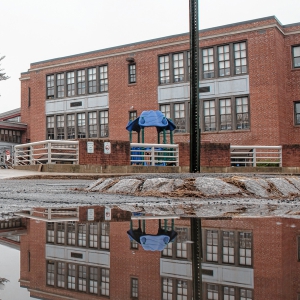 Northampton schools probe staff response to student’s unfulfilled IEP
Northampton schools probe staff response to student’s unfulfilled IEP
 UMass basketball: Minutemen land Florida Tech transfer Donovan Brown
UMass basketball: Minutemen land Florida Tech transfer Donovan Brown
 UMass Chancellor Reyes outlines changes amid financial uncertainty under Trump administration
UMass Chancellor Reyes outlines changes amid financial uncertainty under Trump administration
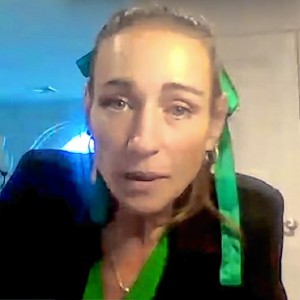 Northampton Housing Authority boss placed on leave
Northampton Housing Authority boss placed on leave
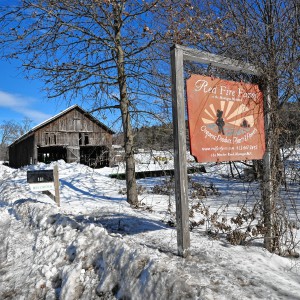 Four Red Fire Farm workers arrested as part of ICE operation in Springfield
Four Red Fire Farm workers arrested as part of ICE operation in Springfield
The townspeople and a couple local politicians are seeking vengeance against the residents of a small house in the outback, who they blame for supposed past promises to bring “health and cure” to the region, promises that now have fallen short.
Inside the home, three sisters and “the child” — a girl named Ella — listen as the mob prepares to burn them alive by barricading the doors and windows and piling timber against the walls: “the sounds outside were like the knocking of bones and the scattering of stones on a grave.”
“What is it like, death?” Ella asks, and though one sister says it’s like “going to sleep after a long day,” the women and Ella decide they’ll face the end by creating a story — one of people who overcome the threat of an evil prince and somehow walk through fire.
Another eerie narrative is “Not to be Taken,” which has some unforgettable opening lines: “Lucinda collected poison bottles. Great knobbly hobnailed clear bottles and fine sleep-blue slim ones, coffin-shaped flasks and flagons with a death’s-head moulded onto their sides.”
We don’t know much about Lucinda at first, though there are suggestions of a tragic past: references to foster homes, counseling, a trust that’s paid for her education. She’s intent on making a home in a small apartment above a grocery store, on the edge of a small town. There she sets up her bottles and talks to a pair of crows that land on her windowsill with small tokens for her.
Into her life comes a deliveryman who’s been dropping off Lucinda’s parcels, wondering what they are: “What’s in these, love? Shoes?” When she shows the man her poison bottle collection, he’s worried they could be a threat to curious children.
“There aren’t” any children, Lucinda retorts.
And then there might be, for somehow Lucinda and the unnamed deliveryman marry and Lucinda gets pregnant, before the story veers into even stranger territory and the mysterious deliveryman reveals a dark side of himself, while Lucinda must rely on the crows for help.
“On Pepper Creek” dips into Australia’s dusty outback history, as a Mr. and Mrs. Gardiner and their two children take a long sea voyage from “the old country,” arriving in a “vicious young city” full of tall-masted ships and shops stocked with “traps and guns and goldminers’ shovels.”
The Gardiners take a slow journey by cart to a crude hut on land they’ve inherited in the bush. Little do they know that trapped inside the “great tarred-and-corded chest” they’ve brought from their home, containing Mrs. Gardiner’s Irish linen, a silver coffeepot, and other keepsakes, is a boggart (shades of “Harry Potter”).
The boggart isn’t happy to find itself in this new land, and it worries that the creatures here are a threat to the Gardiner family. What can it do to make them return to their home in the old country, and how can it safeguard itself?
Other stories in “Kindling” cover a lonely songwriter in a strange land, a new twist on a traditional medieval tale about a knight and a damsel in distress, and a barmaid at a tavern called Ye Aulde Owle who’s “hungry for a great story.”
Kirkus Reviews sums up Jennings’ collection like this: “Here’s a treat for readers who wish each fable launched by the words ‘Once upon a time’ would segue into a cautionary tale punctuated with mythical motifs and genuine danger.”
And the Trees Talked Back
Written and illustrated by Frederick J. Burns
A longtime attorney from Hadley, Frederick “Fred” Burns is also a self-taught artist who’s exhibited his work in a number of places, including the D’Amour Museum of Fine Arts in Springfield.
Now Burns has applied his art — detailed pen and ink drawings with watercolor washes — to his first children’s book, “And the Trees Talked Back,” a fantasy tale that offers some lessons on empathy, understanding, and the importance of protecting the natural world.
Amanda is a young girl who’s just moved to an old colonial house in a New England town; the home, right along the town common, has a massive tree in the front yard, with a red swing hanging from a thick branch, which Amanda quickly enjoys swinging on.
That night, she wakes to discover her cat, Daisy, has escaped through a bedroom window, jumping into the nearby tree. Looking to bring her kitty back, Amanda wanders outside and then enters the town common, shining a flashlight up into the leaves of one of the trees.
Surprise: an eye opens on the side of the tree and a voice says “I didn’t expect your light to shine on my face. I’ve been here for 150 years and no one has ever truly noticed me.”
“I just looked up and there you were,” said Amanda.
That’s Amanda’s introduction to Amika, one of a number of talking trees on the common. Most are friendly, while a few are guarded, saying they’re not supposed to talk to humans for fear of angering Cronus, a gnarled old tree who hates people because of the destruction humans have visited upon forests.
On this magical night, Amanda will learn some valuable lessons about living in harmony with nature and the importance of kindness and listening, even as she has a scary encounter with Cronus.
It’s a message that’s enhanced by Burns’ warm and detailed illustrations, which have helped “And the Trees Talked Back” win a number of honors, including a 2023 gold medal from Family Choice Awards.
More information about Burns and his story is available at fredburnsauthor.com.
Steve Pfarrer can be reached at spfarrer@gazettenet.com.









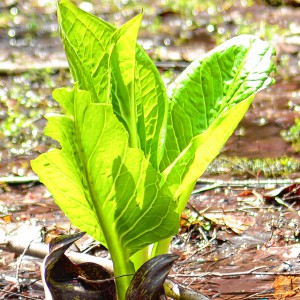 Speaking of Nature: Stinky signs of spring: Skunk cabbage is eye candy after months of winter landscape
Speaking of Nature: Stinky signs of spring: Skunk cabbage is eye candy after months of winter landscape Historic speech echoes two centuries later: ‘A Light Under the Dome’ recalls the first American woman to speak to a legislative body
Historic speech echoes two centuries later: ‘A Light Under the Dome’ recalls the first American woman to speak to a legislative body ‘His notes will linger forever’: Remembering Young@Heart accordionist and Springfield College professor Chris Haynes
‘His notes will linger forever’: Remembering Young@Heart accordionist and Springfield College professor Chris Haynes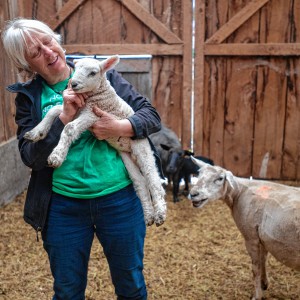 Valley Bounty: And on that farm she had a bit of everything: Little Brook Farm in Sunderland is a labor of love for farmer Kristen Whittle
Valley Bounty: And on that farm she had a bit of everything: Little Brook Farm in Sunderland is a labor of love for farmer Kristen Whittle
